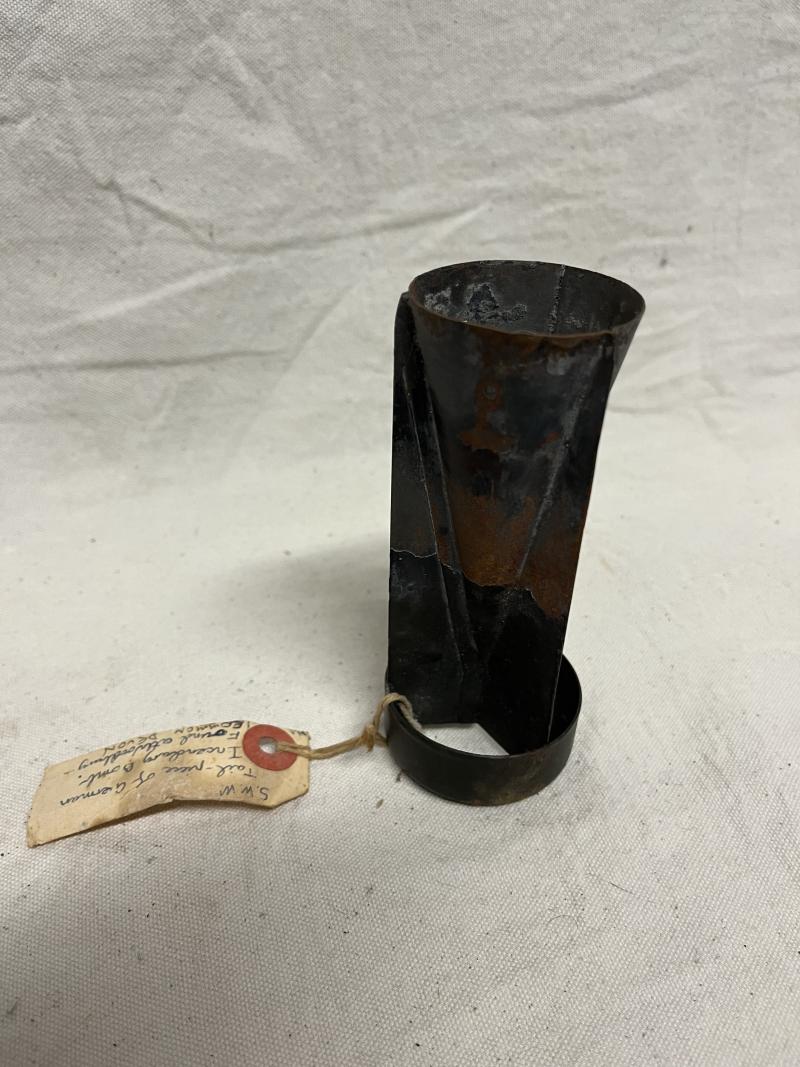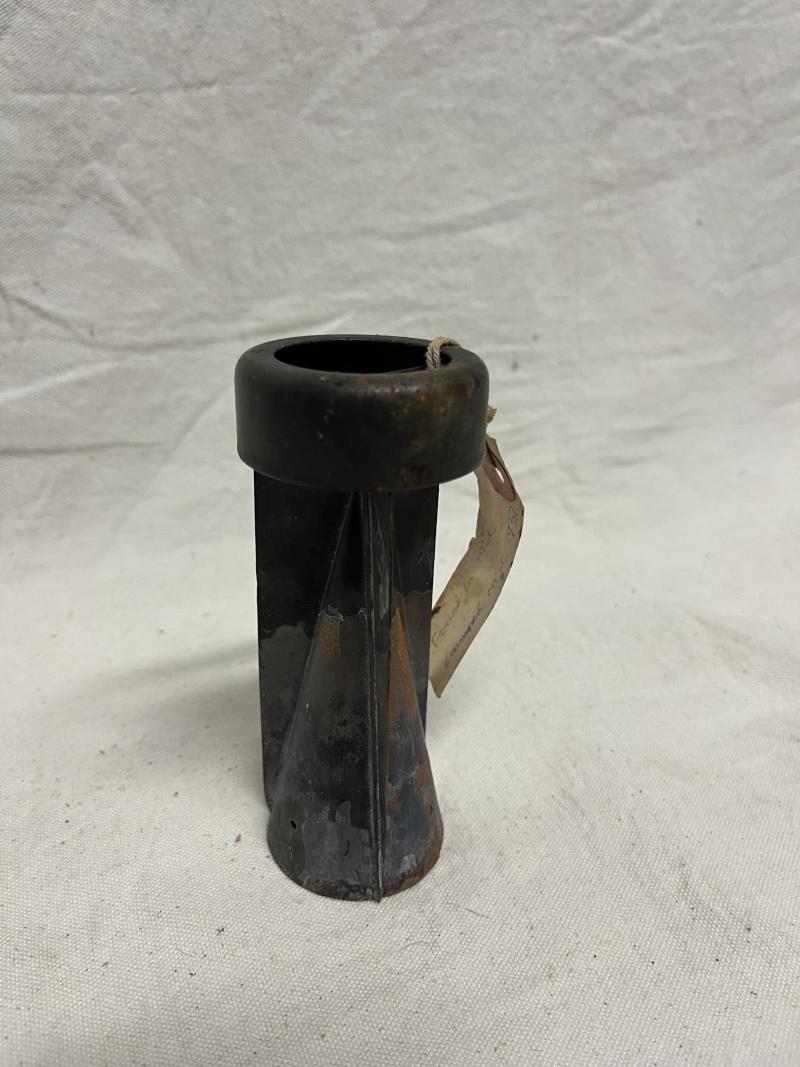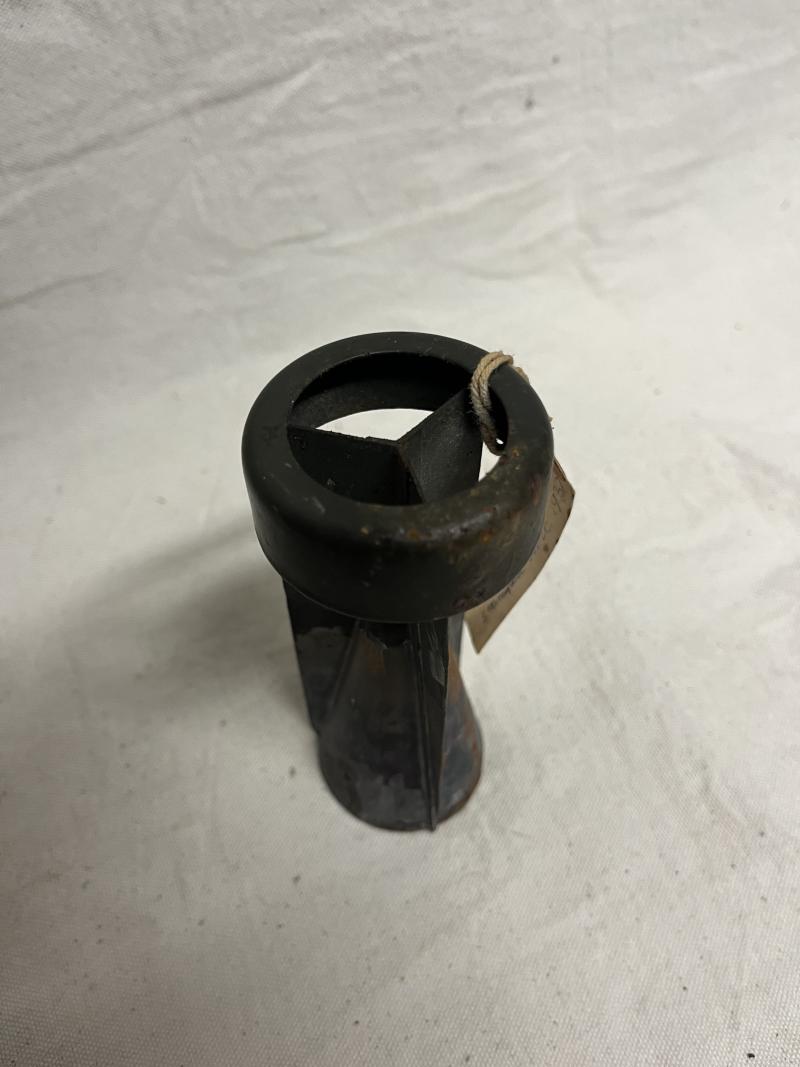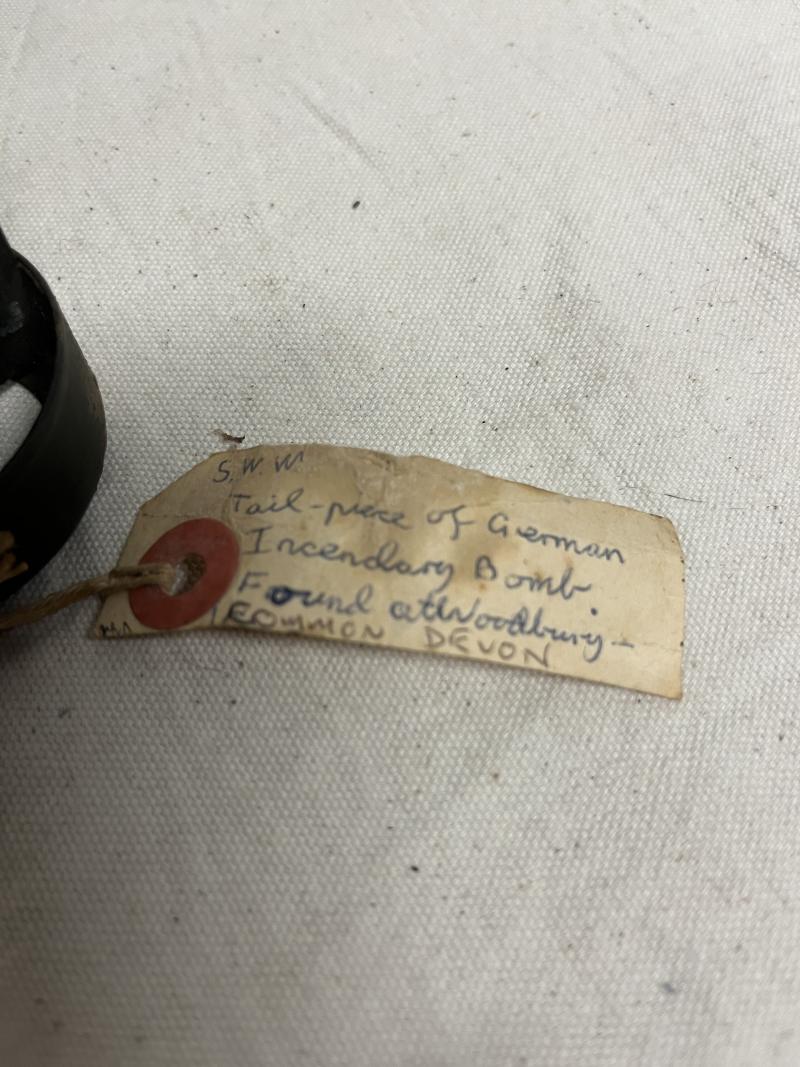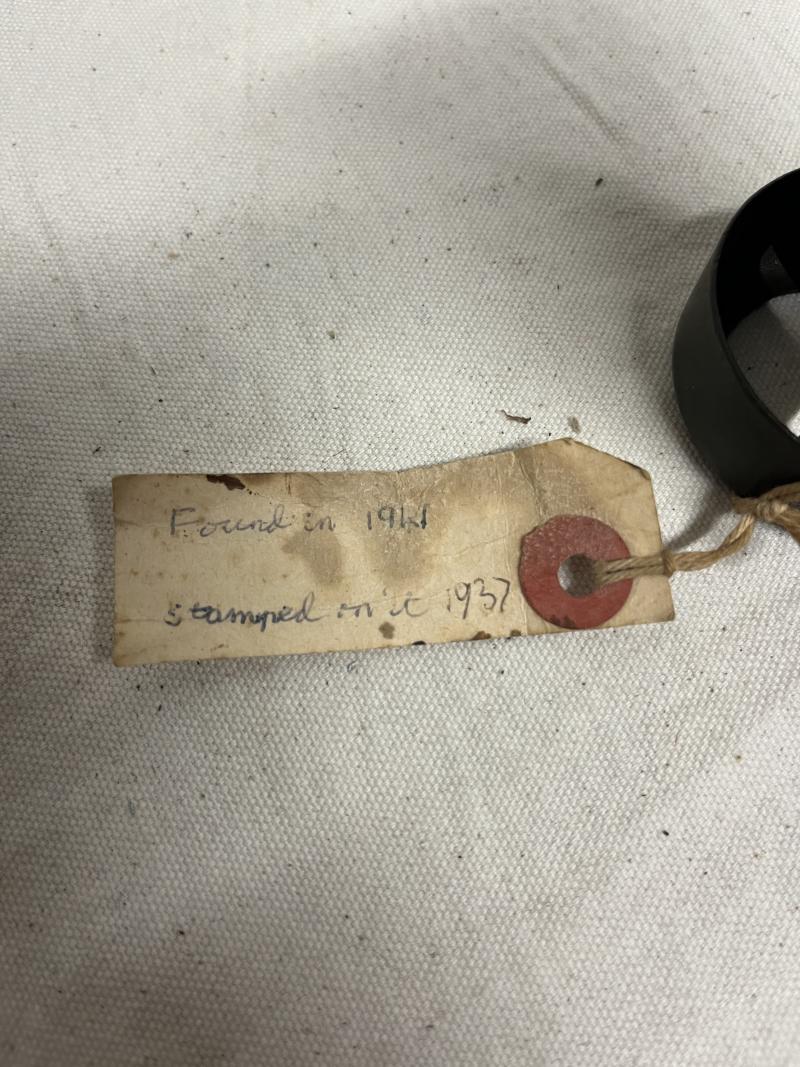WW2, Relic German Incendiary Bomb (B1 E) Tail Fin.
Was £70 now £60
Relic tail fin that fell on Woodbury Common, 7 miles Southeast of Exeter, no drop date but found in 1941 and manufactured in 1937. Some paint loss to the base from the heat of the burning bomb.
The bomb consisted of a cylindrical body made of magnesium alloy and filled with thermite, an incendiary compound, to which was riveted a three-finned steel tail. These bombs did not explode, but on impact the needle in the igniter was driven into a small percussion cap which in turn ignited the thermite filling and, ultimately, the alloy casing itself which produced heat that was sufficient to melt steel. These bombs were 34.5cm long, and 5cm in diameter.
When dropped on built-up areas such as towns and cities, the incendiary bomb proved to be one of the most effective weapons to be used by the German Air Force during the Second World War. During 1940-41, the Luftwaffe caused serious damage by dropping large quantities of incendiary bombs on British towns and cities, either by means of containers that were carried on bomb racks and released to open at a predetermined point, or from very large containers holding up to 700 bombs that remained on the aircraft. To defeat the efforts of the fire services, a small explosive charge was sometimes used in the tail or nose of the 1kg bomb that was either ignited by the heat itself or by means of a delayed action device.
Code: 381


